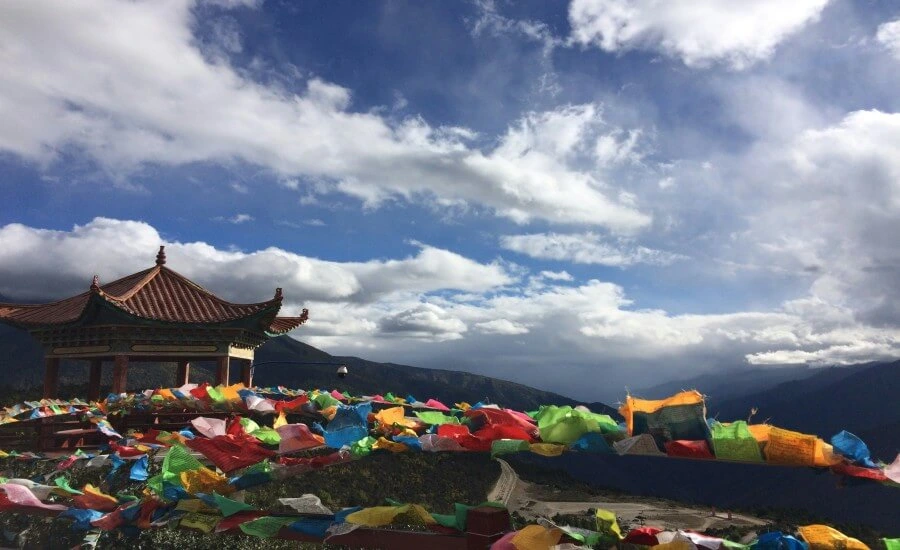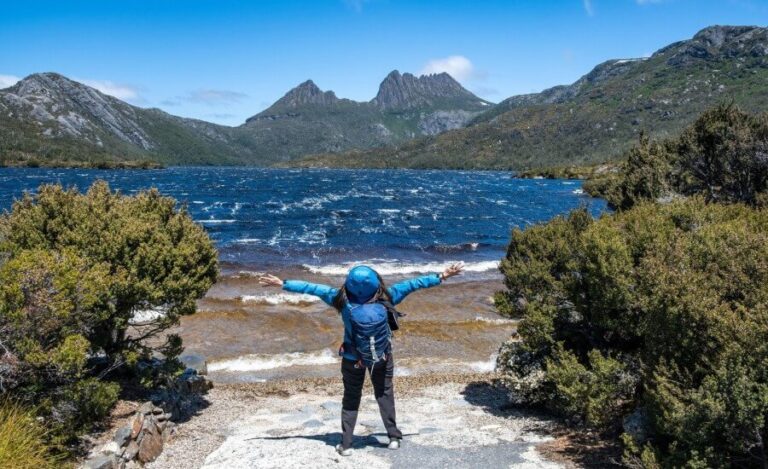
In a world predominantly chasing economic growth measured by Gross Domestic Product (GDP), the small Himalayan Kingdom of Bhutan stands apart, charting its course by a different metric: Gross National Happiness (GNH). This unique philosophy, prioritizing the collective wellbeing and happiness of its people and the planet over mere material wealth, has captivated the global imagination. Bhutan isn’t just a stunningly beautiful country nestled in the mountains; it’s a living experiment in a more holistic, conscious approach to development and living.
For the mindful traveler one who seeks not just to see the world but to connect with it deeply, respectfully, and sustainably Bhutan offers profound inspiration. Its commitment to GNH provides a powerful framework for rethinking why and how we travel.
This post delves into the essence of Bhutan’s Gross National Happiness, exploring its core principles and extracting invaluable lessons that can enrich our journeys, making them more meaningful and aligned with true wellbeing, whether we’re trekking near Tiger’s Nest or exploring our own local communities. Get ready to discover how the wisdom of the Thunder Dragon Kingdom can guide your path as a more conscious and fulfilled traveler.
What is Bhutan’s Gross National Happiness, Really?

Coined in the 1970s by Bhutan’s visionary Fourth King, Jigme Singye Wangchuck, Gross National Happiness is far more profound than simply measuring smiles. It’s a holistic development philosophy that guides the nation’s policies and priorities. GNH asserts that true development occurs when material and spiritual growth proceed side by side, complementing and reinforcing each other. It recognizes that the ultimate goal of human society isn’t endless economic expansion, but the wellbeing of its people in the broadest sense – encompassing their spiritual, physical, social, and environmental health.
Unlike GDP, which focuses narrowly on market transactions, GNH provides a multi-dimensional understanding of progress. It acknowledges that factors like strong community bonds, vibrant cultural traditions, a healthy environment, good governance, and psychological wellbeing are just as crucial if not more so than economic indicators for a thriving society.
This philosophy permeates Bhutanese life, influencing everything from environmental protection laws (Bhutan is constitutionally mandated to maintain at least 60% forest cover) to tourism policies designed for sustainability rather than mass exploitation.
Bhutan’s commitment to GNH isn’t about rejecting economic development, but about ensuring it serves the real needs and aspirations of its people, fostering balance and sustainability for future generations. It challenges the world to ask: What is the true purpose of development? And how can we measure progress in ways that reflect genuine human and ecological flourishing? For mindful travelers, pondering these questions, inspired by Bhutan’s example, can fundamentally shift the perspective on what constitutes a ‘successful’ or ‘valuable’ journey. Beyond souvenirs and photos, what truly defines a rich travel experience for you?
The Four Pillars & Nine Domains: A Blueprint for Wellbeing

To translate its holistic vision into practice, Bhutan’s Gross National Happiness is built upon a structured framework comprising Four Pillars and Nine Domains. Understanding this structure provides deeper insight into Bhutan’s priorities and offers a comprehensive checklist for assessing wellbeing – both for a nation and potentially, for our own lives and travels.
The Four Pillars of GNH are:
- Sustainable and Equitable Socio-economic Development: Ensuring economic progress benefits all citizens fairly and doesn’t compromise future generations’ resources. This includes poverty reduction, quality education, and healthcare access.
- Environmental Conservation: Recognizing the intrinsic value of nature and maintaining ecological balance. This is reflected in Bhutan’s status as a carbon-negative country and its extensive network of protected areas.
- Preservation and Promotion of Culture: Protecting Bhutan’s unique cultural heritage, traditions, values, and identity in the face of globalization. This involves supporting traditional arts, architecture, festivals, and language.
- Good Governance: Promoting accountability, transparency, efficiency, and the rule of law, while ensuring citizens participate in decisions affecting their lives.
These pillars provide the overarching strategic directions. To measure progress and guide policy more effectively, GNH is further broken down into Nine Domains:
- Psychological Wellbeing: Assessing life satisfaction, positive and negative emotions, and spirituality.
- Health: Measuring health status, healthy lifestyles, and access to healthcare.
- Time Use: Evaluating how people spend their time, including work, leisure, sleep, and community participation.
- Education: Assessing literacy, educational attainment, knowledge, and values education.
- Cultural Diversity and Resilience: Measuring the strength of traditions, local languages, artisan skills, and participation in cultural events.
- Community Vitality: Evaluating social connections, community relationships, family vitality, and safety.
- Ecological Diversity and Resilience: Assessing environmental health, pollution levels, wildlife health, and awareness of ecological issues.
- Living Standards: Measuring income levels, housing quality, and material possessions.
- Good Governance: Assessing perceptions of government performance, fundamental rights, political participation, and institutional trust.
This intricate framework highlights the interconnectedness of factors contributing to genuine happiness and wellbeing. It serves as a constant reminder that progress must be balanced across all dimensions, a lesson profoundly relevant for mindful travelers seeking holistic enrichment rather than just ticking off sights.
GNH Lesson 1: Prioritizing Sustainable & Equitable Development

Bhutan’s first two GNH pillars—Sustainable and Equitable Socio-economic Development and Environmental Conservation—offer crucial lessons for mindful travelers committed to responsible tourism. These pillars emphasize balance: ensuring that economic activities support community wellbeing without harming the planet. Bhutan walks this talk, being the world’s first carbon-negative country and constitutionally protecting its forests. How can travelers embody this spirit?
Firstly, by treading lightly on the environment. This goes beyond simply not littering. It involves making conscious choices to minimize our ecological footprint: opting for eco-certified accommodations, reducing single-use plastics (carrying reusable water bottles and bags), choosing lower-impact transportation where possible, staying on marked trails to protect fragile ecosystems, and perhaps even considering carbon offsetting for flights. It means seeing nature not just as a backdrop for adventure, but as a vital system deserving our respect and protection, mirroring Bhutan’s reverence for its natural heritage.
Secondly, travelers can promote equitable development by ensuring their spending genuinely benefits local communities. This involves supporting locally owned businesses guesthouses, restaurants, tour operators rather than large international chains where profits often leak out of the destination.
Buy authentic handicrafts directly from artisans or cooperatives, paying a fair price that reflects their skill and effort. Be wary of exploitative ‘voluntourism’ or experiences that commodify poverty. By consciously directing our travel dollars, we can contribute positively to the local economy, ensuring tourism fosters wellbeing rather than inequality.
Finally, embracing slow travel aligns beautifully with these GNH principles. Rushing through destinations increases environmental impact and often leads to superficial interactions. Traveling slowly allows for deeper cultural immersion, reduces the carbon footprint associated with frequent transit, and provides more sustained economic support to the communities visited. It shifts the focus from frantic sightseeing to meaningful connection, fostering a more sustainable and equitable form of tourism.
GNH Lesson 2: Embracing Cultural Preservation & Promotion

The third pillar of GNH, the Preservation and Promotion of Culture, underscores Bhutan’s commitment to safeguarding its unique identity, traditions, and values amidst global influences. For mindful travelers, this pillar offers invaluable guidance on how to engage with different cultures respectfully and appreciatively, moving beyond surface-level observation towards genuine understanding and exchange.
The first step is approaching cultural encounters with humility and respect. This involves doing some homework before visiting: learning about local customs, traditions, and social etiquette. Simple actions like learning basic greetings in the local language, dressing modestly (especially when visiting religious sites), always asking permission before photographing people, and being mindful of local sensitivities can make a significant difference. It signals respect and opens doors to more authentic interactions. Remember, you are a guest in someone else’s home.
Beyond basic etiquette, mindful travelers can actively seek authentic cultural experiences that support preservation efforts. Instead of passive consumption, engage actively and respectfully. Attend local festivals (like Bhutan’s vibrant Tschechus) with reverence, visit monasteries and cultural sites with a genuine interest in learning, participate in workshops focused on traditional crafts or cooking, and listen attentively to local stories and perspectives. Choose experiences that celebrate and sustain local culture, rather than those that exoticize or dilute it for tourist consumption.
Crucially, learn to value intangible heritage – the traditions, music, dance, storytelling, spiritual practices, and social values that define a culture. Recognize that culture is not just about historical monuments or artifacts in museums; it’s a living, breathing entity embodied by the people.
Engage in conversations, listen more than you speak, and appreciate the diversity of human expression without judgment. By traveling with cultural sensitivity and genuine curiosity, we not only enrich our own understanding but also contribute, in a small way, to the vitality and resilience of the cultures we encounter, echoing the spirit of Bhutan’s third pillar. What cultural tradition have you learned about through travel that deeply resonated with you?
GNH Lesson 3: Nurturing Good Governance & Psychological Wellbeing

The fourth GNH pillar, Good Governance, combined with domains like Psychological Wellbeing, Time Use, and Community Vitality, points towards the importance of inner balance, strong communities, and ethical conduct – lessons deeply relevant to the mindful traveler’s inner journey and outward behavior. Good governance, in the context of travel, isn’t just about national policies; it’s also about our personal conduct as responsible ‘governors’ of our impact while abroad.
A key takeaway is the importance of cultivating presence and psychological wellbeing during our travels. Bhutan, with its serene landscapes and deep spiritual roots in Buddhism, naturally inspires mindfulness. Travelers can learn from this by intentionally practicing presence: paying full attention to sensory experiences (the taste of local food, the sound of prayer flags fluttering, the feeling of mountain air), savoring moments instead of rushing through them, and consciously disconnecting from digital distractions. Travel can be a powerful time for introspection.
Use quiet moments for reflection, perhaps keeping a journal, meditating, or simply sitting in stillness. Ask yourself: What truly contributes to my own sense of wellbeing? How does this journey align with my values?
Furthermore, the emphasis on Time Use and Community Vitality encourages travelers to value quality time and genuine connection. This means resisting the urge to cram too much into an itinerary. Build in unstructured time for spontaneous discoveries, rest, and reflection. Prioritize meaningful interactions over checking off a list of sights.
Engage authentically with travel companions, guides, and local people you meet. Be open, curious, and respectful in your conversations. Contributing positively to the places you visit – being a courteous, responsible, and appreciative guest – reflects the principle of good governance on a personal level.
Ultimately, this GNH lesson invites us to see travel not just as an escape or a consumptive activity, but as an opportunity for personal growth and enhancing our own wellbeing. By traveling mindfully, connecting genuinely, and reflecting on our experiences, we can return home not just with memories, but with a renewed sense of purpose, inner peace, and understanding – a personal harvest inspired by Bhutan’s holistic vision.
How Mindful Travelers Can Embody GNH Principles Anywhere

While Bhutan provides a powerful living example of GNH, its core principles offer a universal framework for mindful travel that can be applied anywhere in the world, transforming how we explore and interact with different places and cultures. You don’t need to travel to Bhutan to travel like a Bhutanese philosopher – prioritizing wellbeing, connection, and sustainability.
Here’s how to integrate the spirit of GNH into your journeys, wherever they may take you:
- Make Conscious Choices (Sustainability & Equity): Research destinations and tour operators for their commitment to environmental sustainability and fair labor practices. Choose eco-friendly options, minimize waste, support local economies directly, and consider the overall impact of your travel choices.
- Practice Cultural Humility (Cultural Preservation): Approach every new culture with respect, openness, and a genuine desire to learn. Set aside preconceived notions, listen actively, observe respectfully, and engage with humility. Value both tangible and intangible heritage.
- Cultivate Inner Awareness (Psychological Wellbeing): Travel with intention and presence. Disconnect from unnecessary digital noise. Pay attention to your senses, thoughts, and feelings. Use travel as an opportunity for reflection, gratitude, and personal growth.
- Strive for Positive Impact (Good Governance & Community): Be a responsible and respectful guest. Follow local rules and customs. Engage positively with local communities. Aim to leave places and people slightly better – or at least, unharmed – by your visit. Ask: “How can my presence here contribute positively?”
- Redefine Your Travel Goals: Shift your focus from accumulating experiences or ticking off bucket lists to seeking genuine connection, deeper understanding, and contributing to mutual wellbeing. Measure the success of your trip not just by photos taken, but by lessons learned and connections made.
Embodying GNH principles in travel is an ongoing practice, not a destination. It requires conscious effort, self-reflection, and a willingness to prioritize depth over breadth, connection over consumption, and wellbeing over fleeting excitement. It’s about recognizing that how we travel matters – profoundly – to ourselves and to the world.
Bonus: Traveling Mindfully in Bhutan

If you are fortunate enough to visit Bhutan, embracing GNH principles becomes even more pertinent. Here are specific tips for traveling mindfully within the Kingdom:
- Respect the Policy: Understand Bhutan’s “High Value, Low Volume” tourism policy. The mandatory Sustainable Development Fee (SDF) directly funds free healthcare, education, infrastructure, and conservation efforts, aligning with GNH. See it as an investment, not just a cost.
- Engage Your Guide: Having a licensed Bhutanese guide is mandatory. See this as an opportunity, not a restriction. Engage with your guide, ask questions, listen to their perspectives – they are invaluable bridges to understanding local culture and GNH in practice.
- Dress Modestly: Especially when visiting Dzongs (fortresses), monasteries, and religious sites. Shoulders and knees should typically be covered. Your guide can advise on specific requirements.
- Photography Etiquette: Always ask permission before taking photos of people. Photography is often restricted inside temples and monasteries – respect these rules. Focus on experiencing rather than just capturing.
- Support Local: While the SDF covers basics, purchase authentic handicrafts directly from artisans or approved shops. Be mindful of where your additional spending goes.
- Embrace the Pace: Bhutan generally moves at a slower, more mindful pace than many parts of the world. Resist the urge to rush; embrace the calm and allow time for reflection and spontaneous moments.
- Be Open & Respectful: Approach everything with curiosity and respect for Bhutanese traditions, beliefs, and way of life.
Challenges & Mindful Approaches

Integrating GNH principles into travel, whether in Bhutan or elsewhere, isn’t without its challenges. Here are some potential hurdles and mindful ways to approach them:
- Challenge: The cost and perceived restrictions of traveling to Bhutan (SDF, mandatory guide).
- Mindful Approach: Reframe the cost as a direct investment in sustainable development, cultural preservation, and ensuring a high-quality, uncrowded experience, fully aligned with GNH. See the guide requirement as a valuable opportunity for deeper cultural insight. This model discourages harmful mass tourism.
- Challenge: Feeling overwhelmed trying to apply GNH principles perfectly on every trip elsewhere.
- Mindful Approach: Remember it’s a practice, not perfection. Start small. Choose one principle to focus on for your next trip (e.g., minimizing plastic waste, learning more local phrases). Celebrate small successes. The intention to travel more mindfully is the crucial first step.
- Challenge: Avoiding romanticization of Bhutan or GNH.
- Mindful Approach: Acknowledge that Bhutan, like any country, faces its own modern challenges. GNH is a guiding philosophy and aspiration, not a guarantee of utopia. Maintain a balanced perspective, appreciating the vision while understanding the complexities of its implementation. Focus on the lessons GNH offers, rather than idealizing the location itself.
- Challenge: Balancing personal desires with responsible travel ethics.
- Mindful Approach: Reflect on what truly brings you joy and fulfillment in travel. Often, deeper connections and meaningful experiences (aligned with GNH) are more satisfying long-term than purely consumptive activities. Seek alignment between your values and your actions. Sometimes this might mean choosing a different activity or even a different destination.
Before You Travel Mindfully: A GNH-Inspired Checklist
Prepare for your next journey with intention, drawing inspiration from Bhutan’s focus on holistic wellbeing:
- Research & Reflect: Learn about your destination’s culture, customs, environmental context, and social issues. Reflect on why you want to go and what you hope to learn or experience beyond typical tourism.
- Set Mindful Intentions: What GNH principles resonate most with you for this trip? (e.g., connection, presence, sustainability). Set 1-2 clear intentions.
- Pack Consciously: Bring reusable items (water bottle, coffee cup, shopping bag). Pack modest clothing options if culturally appropriate. Include a journal for reflection. Pack light.
- Choose Ethically: Select tour operators, accommodations, and activities that demonstrably support local communities and environmental sustainability.
- Learn the Lingo: Master at least a few basic phrases (hello, thank you, goodbye) in the local language.
- Plan for Presence: Intentionally schedule some downtime. Decide on periods for digital disconnection to fully immerse yourself.
- Prepare for Openness: Cultivate an attitude of curiosity, flexibility, and humility. Be ready to learn, adapt, and step outside your comfort zone respectfully.
Conclusion: Finding Happiness on the Path

Bhutan’s Gross National Happiness offers more than just a unique development model; it provides a profound source of wisdom for anyone seeking to travel more mindfully and live more intentionally. Its emphasis on balancing material progress with environmental health, cultural richness, good governance, and psychological wellbeing serves as a powerful reminder of what truly constitutes a flourishing life and a meaningful journey.
The lessons from GNH encourage us to shift our traveler’s compass: from chasing fleeting pleasures to cultivating lasting wellbeing, from passive consumption to active connection, from leaving a footprint to leaving a positive handprint.
By embracing sustainability, respecting cultures, nurturing our inner awareness, and striving for positive impact, we can transform our travels into experiences that are not only happier for ourselves but also contribute to the wellbeing of the places and people we visit.
Your invitation: As you plan your next adventure, consider Bhutan’s quiet wisdom. Choose one principle inspired by Gross National Happiness be it deeper environmental consciousness, greater cultural curiosity, or a commitment to more present moments and weave it into the fabric of your journey.
Discover the joy that comes not just from seeing the world, but from connecting with it and yourself on a deeper, more meaningful level. May your travels be happy, in the truest sense of the word






